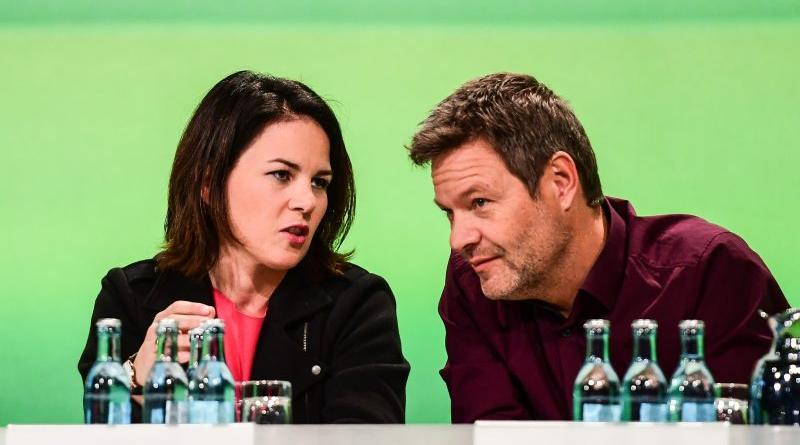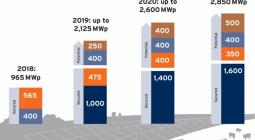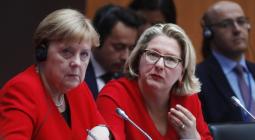Why the success of the German Greens might not be short-lived.

The German Greens struggled to ride the wave of support it received a few years ago but, following their recent success in the EU elections, this time it looks like things could be much more long-lived. EURACTIV’s media partner Der Tagesspiegel takes a look at the state of play.
These days, many rub their eyes in amazement when they hear of the success of the Greens. “I cannot keep up with it,” tweeted Paula Piechotta, a Greens member from Leipzig, a few days ago.
For the first time, polling institute Forsa placed the Greens just ahead of the Christian Democrats (CDU) and Christian Socialists (CSU) alliance in a nationwide poll. ‘Green wave’ sceptics promptly warned that these figures should not be taken too seriously.
The Green party has already experienced fleeting moments of rapid success.
In the summer of 2011, polls showed that the Greens were close to the 30% mark and Winfried Kretschmann had become Baden-Württemberg’s Minister President: Germany’s first Green head of government.
The Greens were the new people’s party, they said. Even the thought that Jürgen Trittin could become Germany’s next Finance Minister was a plausible notion for a lot of people.
It took a long time for the Greens to recover from the shock. At the start of 2017, Green politicians were repeatedly questioned on why their party still needed them. And in North-Rhine Westfalia’s, the Greens lost 15 seats in the 2017 elections.
They say the Greens have what it takes for the Chancellor’s office
A little caution is therefore advisable when more polls such as those organised by Politbarometer and Deutschlandtrend are also placing the Greens in front of the CDU/CSU.
Quick successes can quickly be over but some members of the Greens hope that this time, things could be different.
They argue that they have achieved momentum by themselves. In a changed party landscape, the Greens succeeded in reaching out to the centre of society.
The ecological modernisation project is gradually becoming capable of winning a majority. Even if not every single instrument is of wide-appeal, their basic idea still is.
Lukas Beckmann, a founding member of the German Greens and long-standing managing director of the Greens’ Bundestag faction, recently spoke of the emergence of a “new willingness” under the leadership of Annalena Baerbock and Robert Habeck.
The Greens have what it takes to take over the Chancellor’s office, he said.
However, Baerbock and Habeck do not currently want to discuss this issue as they deem it more important to stabilise the ecological party’s long-term success so that they keep reaching 20% in the polls. And that is far from being certain.
There is probably some truth to the green upswing being, at least partially, achieved by the party’s members.
In the coalition between the CDU/CSU, the Greens and the Free Democratic Party (FDP), also called the ‘Jamaica coalition’, the Greens proved they are capable of defending their issues (coal withdrawal) but are also willing to seek compromise.
At the federal level, they have also long governed in the most diverse constellations – no other party is so flexible.
When the Greens are successful, others are in crisis
The current polls are just a snapshot and are linked to the desolate state of the grand coalition, the crisis of social democracy – and a good portion of hope.
Baerbock and Habeck – at least for part of society – embody the type of politician who is responsible, a trait that appears to be in demand these days.
And this is precisely where the problem lies: the view of the Greens is capable of changing.
Green MPs, who were given the cold shoulder by their members only a short time ago, today report – half irritated, half amused – how they are now being courted.
In the European elections, the Greens became the strongest force in cities in the Ruhr area such as Gelsenkirchen, Dortmund and Bochum – all former strongholds of the Social Democratic Party (SPD).
Only two years ago, the Greens reached a meagre 6.4% in NRW’s state elections. How did they turn around their fortunes in such a short period of time?
Attempts by the competition to label the Greens as a forbidden party again have not caught on so far.
It seemed like the time had passed when FDP leader Christian Lindner recently complained in an interview that Habeck dreamed of a “meatless country”. However, this is by no means a guarantee that society will put their long-term trust in the Greens.
Opposition parties generally have an easier time of raising hopes. Ruling parties run a greater risk of disappointing and squandering that hope though.
7 June 2019





